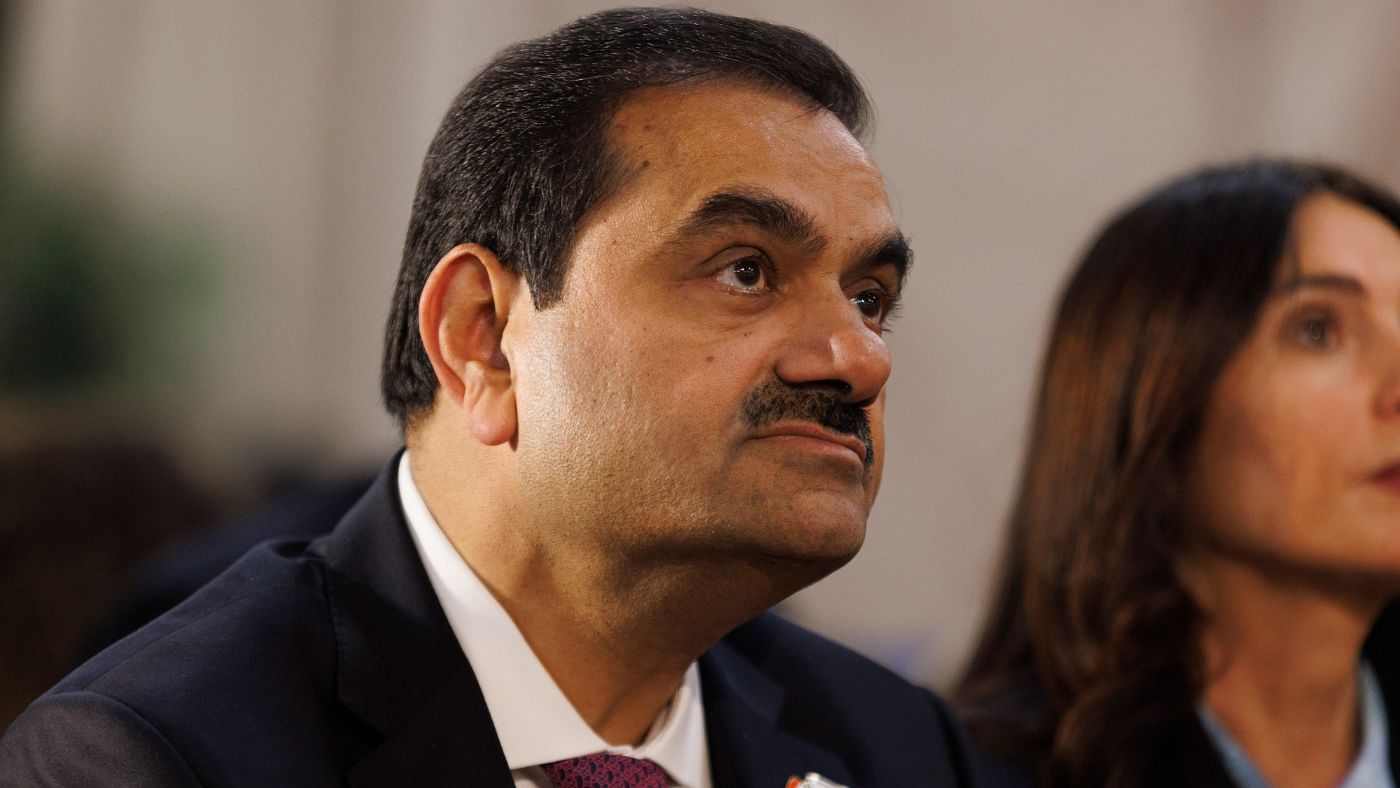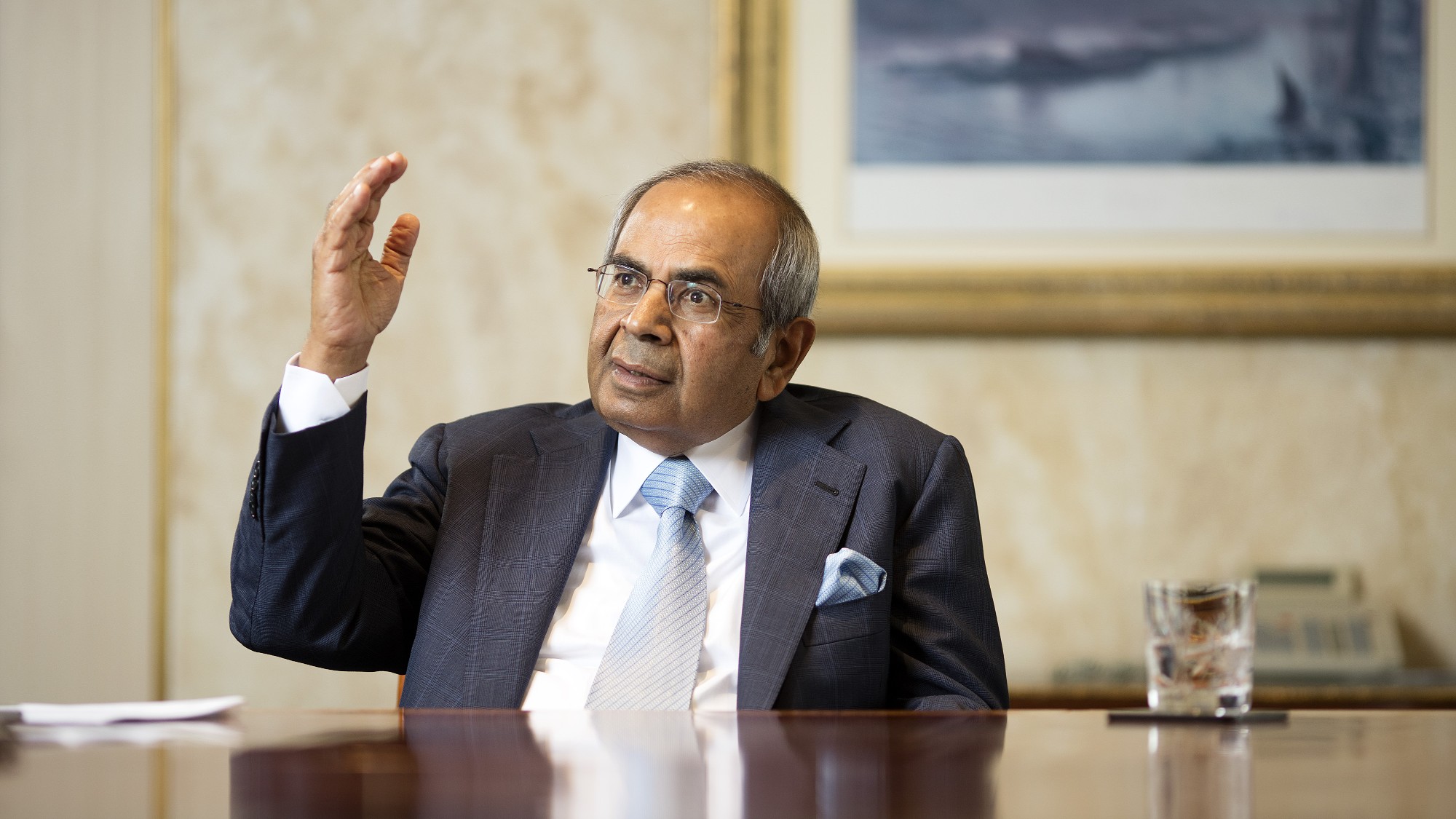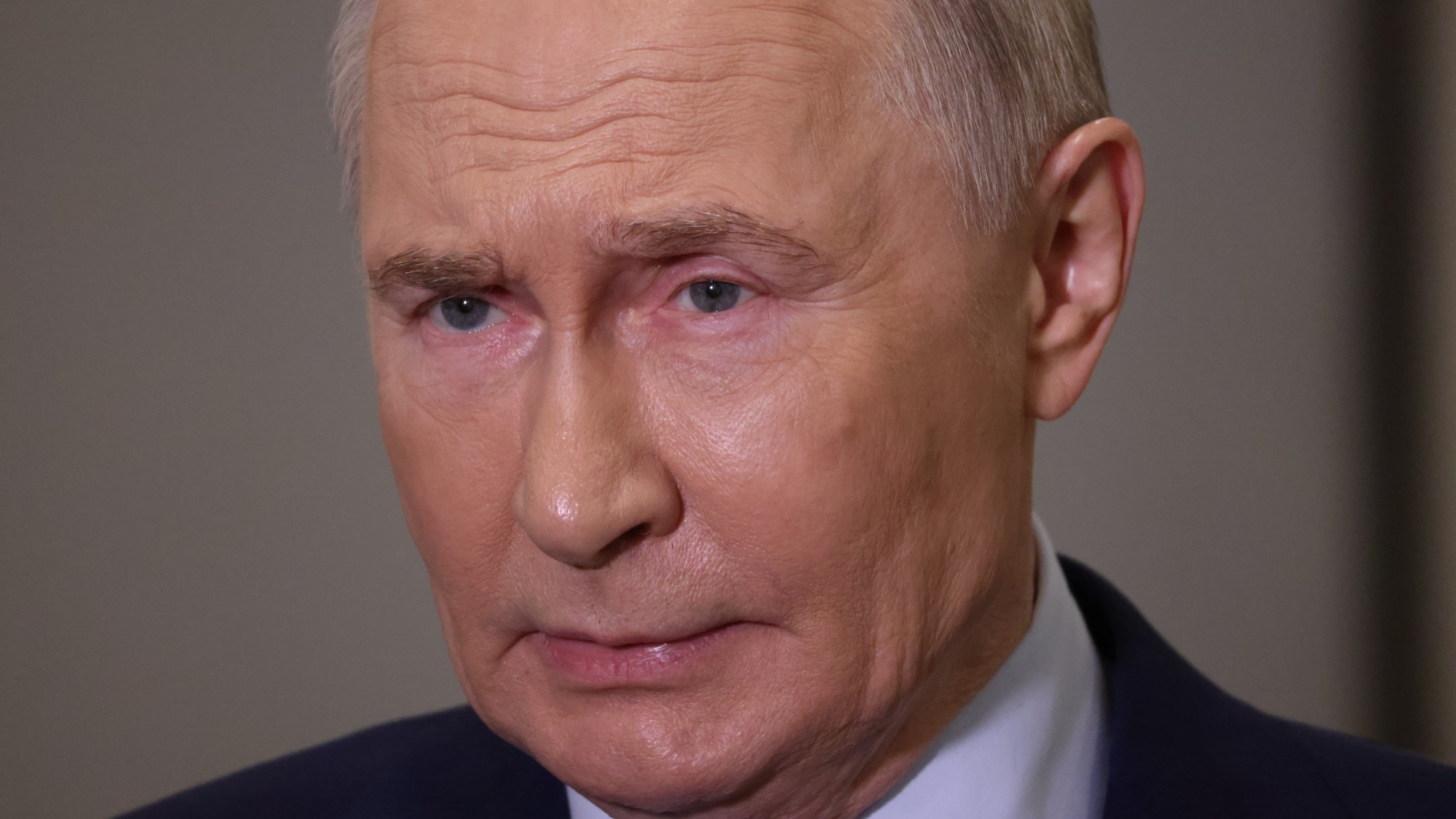Gautam Adani: Asia’s richest man and ‘the largest con in corporate history’
Indian billionaire accused of ‘brazen stock manipulation and accounting fraud’ over decades

A free daily email with the biggest news stories of the day – and the best features from TheWeek.com
You are now subscribed
Your newsletter sign-up was successful
Indian billionaire Gautam Adani was until last week topping global rich lists alongside Elon Musk, Jeff Bezos and Bernard Arnault.
But on 24 January, the 60-year-old industrialist was accused by a New York-based firm of running “the largest con in corporate history”.
Hindenburg Research, which specialises in activist short-selling, claimed Adani and his family had engaged in “brazen stock manipulation and accounting fraud” over decades. The allegations prompted a near $70bn drop in the value of Adani Group.
The Week
Escape your echo chamber. Get the facts behind the news, plus analysis from multiple perspectives.

Sign up for The Week's Free Newsletters
From our morning news briefing to a weekly Good News Newsletter, get the best of The Week delivered directly to your inbox.
From our morning news briefing to a weekly Good News Newsletter, get the best of The Week delivered directly to your inbox.
Adani has denied the allegations and swiftly published a 400-page rebuttal, “draping himself in the Indian flag” and claiming the attack on him was an attack on India, said The Times.
However, many questions remain about the businessman who rose “from relative obscurity as a commodities trader in Gujarat to head a sprawling business empire spanning airports, mining, energy, cement and ports”.
Who is Gautam Adani?
Adani was born in Ahmedabad in the Indian state of Gujarat in 1962 into a middle-class family of Jains, a religion that preaches asceticism and strict vegetarianism. He was one of eight children, and his father ran a small textile business.
After dropping out of school, the young Adani moved to Mumbai and went into the diamond industry, first as a sorter and then as a trader, said Insider. He then helped his brother to run a plastics company, before moving on to commodities trading.
A free daily email with the biggest news stories of the day – and the best features from TheWeek.com
In 1998, Adani was kidnapped along with an associate and reportedly released for a multimillion-dollar ransom. In 2008 he was at the Taj Mahal Hotel in Mumbai during a series of terrorist attacks that killed 175 people in all, including nine attackers.
Adani is not one for flashy cars or famous mansions. “He dresses in forgettable dark suits and white shirts, and describes himself as an introvert who does not enjoy attending parties,” said The Economist.
Adani’s links to Modi
In the late 1990s, Adani – “who has always deftly navigated Indian bureaucracy”, according to The Economist – won the government contract to run the massive Mundra port in Gujarat. Mundra, along with a massive coal-fired power plant nearby, were the basis of the tycoon’s empire, which has included buying up rail and water rights, land and natural resources, clean power and data centres.
Adani’s stratospheric rise came alongside that of Narendra Modi, India’s now prime minister, who began his 13-year tenure as Gujarat’s chief minister in 2001. Modi’s administration reportedly leased land to Adani at “knock-down prices”, and it was Adani’s private jet Modi used to fly to Delhi in 2014 after winning the general election.
Adani strongly denies that his success has been due to any preferential treatment. The foundations of his business, he claims, “were laid in the 1980s, when the Indian government relaxed trade restrictions”, said The New York Times.
The Hindenburg allegations
In essence, Hindenburg says that the Adani Group “used offshore entities in tax havens to inflate artificially the share prices of its listed companies, allowing them to take on more debt and ‘putting the entire group on a precarious financial footing’”, said the Financial Times (FT).
The “startling” accusations mean “offshore shareholding entities based in Mauritius and elsewhere are not independent shareholders but are instead fronts for the Adani family”, said The Economist.
These entities, according to the Hindenburg report, account for much of the trading in the group’s shares, pumping up the prices of Adani’s seven listed companies to “stratospheric levels”.
Hindenburg’s report came just days before Adani Enterprises, the magnate’s flagship group, was seeking to launch the country’s biggest secondary public offering. It was aiming to raise about $2.4bn. The share sale, which many saw as a “test of investor faith” according to the FT, was completed.
Abu Dhabi’s International Holding Company backed Adani on Monday when it said it would invest $400m. However, brokers said the kinds of bids coming in, and the number of them from wealthy Indian investors, suggested many were from “high-net-worth people Adani reached out to for support”.
The Adani Group accused Hindenburg, which stood to make a lot of money by shorting Adani shares following the publication of its report, of publishing a “malicious combination of selective misinformation and stale, baseless and discredited allegations”, said The Guardian.
-
 How the FCC’s ‘equal time’ rule works
How the FCC’s ‘equal time’ rule worksIn the Spotlight The law is at the heart of the Colbert-CBS conflict
-
 What is the endgame in the DHS shutdown?
What is the endgame in the DHS shutdown?Today’s Big Question Democrats want to rein in ICE’s immigration crackdown
-
 ‘Poor time management isn’t just an inconvenience’
‘Poor time management isn’t just an inconvenience’Instant Opinion Opinion, comment and editorials of the day
-
 Companies are increasingly AI washing
Companies are increasingly AI washingThe explainer Imaginary technology is taking jobs
-
 Why is pizza in decline?
Why is pizza in decline?In the Spotlight The humble pie is getting humbler
-
 How prediction markets have spread to politics
How prediction markets have spread to politicsThe explainer Everything’s a gamble
-
 Blinkit: India’s 10-minute delivery app
Blinkit: India’s 10-minute delivery appUnder The Radar Market pressures and rider unrest are casting a shadow over leading player
-
 SiriusXM hopes a new Howard Stern deal can turn its fortunes around
SiriusXM hopes a new Howard Stern deal can turn its fortunes aroundThe Explainer The company has been steadily losing subscribers
-
 How will China’s $1 trillion trade surplus change the world economy?
How will China’s $1 trillion trade surplus change the world economy?Today’s Big Question Europe may impose its own tariffs
-
 Gopichand Hinduja and the rift at the heart of UK’s richest family
Gopichand Hinduja and the rift at the heart of UK’s richest familyIn The Spotlight Following the death of the patriarch, the family’s ‘Succession-like’ feuds are ‘likely to get worse’
-
 Will latest Russian sanctions finally break Putin’s resolve?
Will latest Russian sanctions finally break Putin’s resolve?Today's Big Question New restrictions have been described as a ‘punch to the gut of Moscow’s war economy’